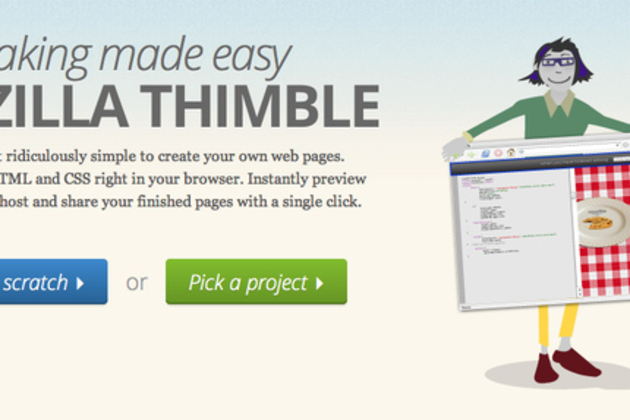Mozilla launches Thimble site-building app for HTML novices

Mozilla added a new app to its Webmaker suite today, with the launch of Thimble — a tool designed to simplify website creation. Thimble, in its most basic form, is a visual HTML editor and tutorial that allows users to create and preview sites in real-time, using side-by-side editor and output panels. The app also alerts users whenever they make a coding error, providing simple explanations that underscore its focus on HTML novices, rather than veterans. Coders can either start from scratch, or build their sites from a pre-loaded template. Once a project has been finalized, users can publish it to the web with one click, and instantly share it with a customized URL.
Alongside Thimble, Mozilla has also unveiled a revamped Webmaker.org...



 We
We 